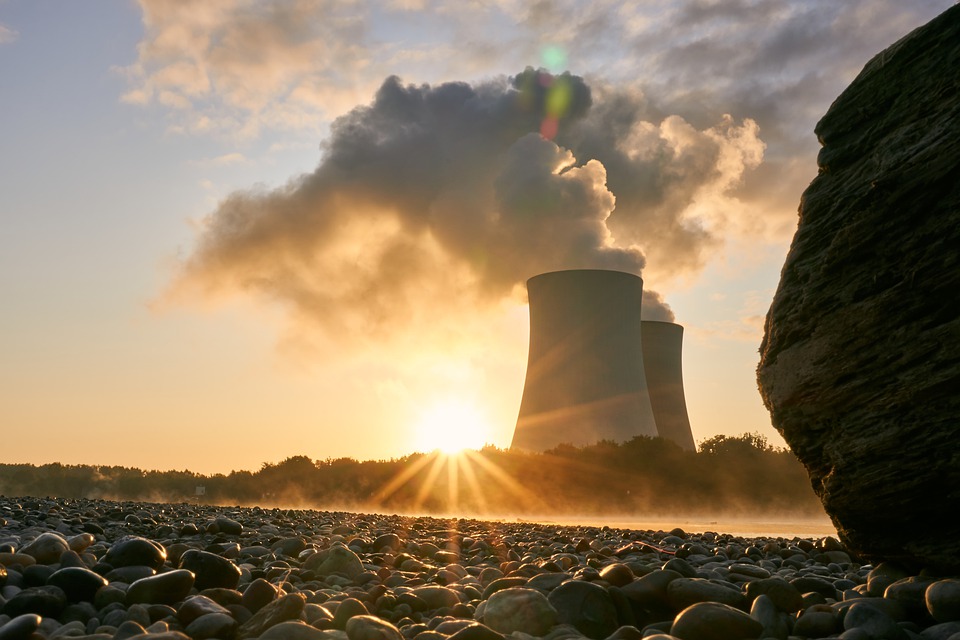When you hear the words nuclear energy, what is the first thing you think of? Hiroshima and Nagasaki? Or the Chernobyl disaster?
It’s sometimes easy to forget that nuclear energy is actually one of the cleanest and safest energy sources around. This article aims to re-introduce you to this oft-forgotten fact.
What Is Nuclear Energy?
Nuclear energy, also known as atomic energy, refers to the energy in the nucleus (the core of an atom). This energy is released through something called nuclear fission, where atoms are split through chain reactions in a nuclear reactor. Nuclear fusion is another process which releases nuclear energy from atoms but differs from nuclear fission in that it involves combining two light nuclei to release energy.
This same energy is used to create electricity and as a result, it is noted that nuclear energy can easily replace the use of fossil fuels in the world. But, due to the heart-wrenching tragedies that occurred, countries and governments are scared to use nuclear energy, unaware of its vast benefits, which include:
1. Low Cost
Although the construction of nuclear power plants may be very costly, it is very cost-effective in the production of electricity. Electricity produced by nuclear energy is much cheaper than that produced by gas, coal or oil.
Furthermore, in contrast to the rise in prices of fossil fuels, there is no price inflation for nuclear energy which means that its costs are more likely to remain stable. It can either stay the same or even decrease due to advances in technology.
2. Job Creation
It is noted that nuclear power stations can provide job opportunities to people. For example, in the United States, the nuclear industry provides nearly half a million job opportunities to people and contributes approximately $60 billion in its Gross Domestic Product every year.
3. Land Usage
The most shocking benefit of nuclear energy is how not only can it produce more carbon-free electricity, it can also operate on a smaller amount of land. A great example is a nuclear facility in the United States that uses a little under 1 square mile to produce electricity whereas a solar power plant would need 75 times more space to produce the same amount of electricity.
4. Carbon Emissions
One huge criticism over the use of fossil fuels is the tons of carbons emissions it produces. However, did you know that using nuclear energy will not result in any carbon emissions?
When a significant amount of carbon is being released in the atmosphere, both our climate and our ozone layer are being deeply affected. The overabundance of carbon dioxide produced is in fact the main reason behind climate change and global warming.
However, with nuclear energy, our planet is safer. As per the Nuclear Energy Institute(NEI), the electricity produced by atomic energy stops 528 million tons of carbon dioxide from being released in the atmosphere. Hence, nuclear energy helps us in our combat against climate change and global warming.
5. Protection of Quality of Air
When we burn fossil fuels to produce energy, there are also some pollutants that are released which affects the quality of the air we breathe, like sulphur dioxide, nitrogen oxide, mercury and other harmful pollutants. However, nuclear energy does not contribute to the production of such contaminants in the air! Instead, if we switch to nuclear energy, we can ensure that our precious air is free from these air pollutants that can cause acid rains and lead to lung cancer disease in human beings.
6. High Reliability
Despite being renewable sources of energy, solar and wind energy require the sun and wind to function. These climatic conditions are not always present in the required amounts, which can lead to lower production of energy. However, nuclear energy can be generated at any time, irrespective of outside conditions, which increases its level of reliability.
7. High Energy Density
The process of nuclear fission is said to generate more significant amounts of energy compared to the amount of energy produced through the burning of fossil fuels. The process is said to be very efficient and as a result, lower amounts of nuclear fuel is required by the nuclear power plant. This not only leads to a reduction in nuclear energy production costs but also in an increase in energy produced within one nuclear power plant.
8. Future Energy Supply
The most important advantage of nuclear energy is that it represents a unique and inexhaustible source of energy for future generations. If it is adequately regulated and controlled, no fatal disasters can occur and the Earth can enjoy the benefits of nuclear energy.
So, do you still think that using nuclear energy is not the right decision? Please share your comments!
